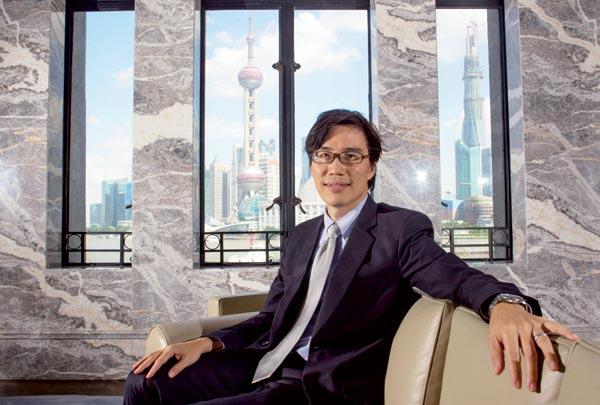Watchdog bites with no favor
 |
|
Peter Wang of Jones Day says the enforcement of the antimonopoly law is improving in China.[Photo/China Daily] |
Peter Wang, antitrust law partner with Jones Day, a Washington-based law firm, says there is no law prohibiting companies from setting their own prices. "However, if we make certain products and you make certain products, it is not OK for us to agree that we keep our price high together. That's what we call a price-fixing cartel.
"Manufacturers are also not allowed to set or fix the selling price they want from consumers with their distributors. This is called resale price maintenance, and that's the issue that has cropped up in infant formula investigations in China.
"In general, cartels are illegal everywhere with no exception. Retail price maintenance can sometimes be illegal in the US, but enforcement and punitive actions usually are not that stringent and companies can raise appropriate defenses such as that the arrangements are actually beneficial to competition."
Foreign companies have been hit harder by the recent investigations because China wants to enforce anti-monopoly laws and does not want prices to be unreasonably high, Wang says.
Foreign firms are usually high-end companies with more pricy labels, compared with domestic firms. "So when your concern is high prices, then naturally you end up focusing more on multinational companies," says Wang, who has been practicing anti-monopoly law for more than 21 years.
Many of the foreign baby milk producers have cut prices in China after the NDRC investigation. John Ross, senior fellow at the Chongyang Institute for Financial Studies with Renmin University of China and an economic consultant to the mayor of London between 2000 and 2008, says the price reductions show that excess profits existed.
Talking about the recent investigations, Ross says the pharmaceutical industry in particular is prone to corruption in all countries.
The consequence of the patent system - wherein a company that can sell its drugs during the patent period may achieve 10 times the price, and extremely high profits, compared with the period after the patent has expired - is a form of limited-time monopoly, he says.
"This creates huge incentives to attempt to achieve rapid sales, and high profits during the patent period make corruption economically rational. As this is not a problem confined to China I am even slightly surprised that there have not been scandals of this type previously," he says, adding the investigation is a good sign that the Chinese government is serious about anti-monopoly law enforcement.
Wang of Jones Day agrees with this viewpoint and says that when the anti-monopoly law first came out in China in 2008, most of the actions pertained to mergers and acquisitions, such as Coca-Cola's failed bid to acquire China's Huiyuan Juice Group.
Over the past several years, the antirust authority has approved some cases but only with conditions. "In the second stage the authority expands its focus to price fixing and over the last few months we have heard a lot about cases related to resale price maintenance," Wang says. "It is obvious that things are progressing in China."
Such steps have also simplified the job procedures for professionals like him, he says. "My job every day is to tell clients that there are these laws and you need to be careful about it. Five years ago in China, nobody would have believed that the antitrust laws would be enforced. But now when I tell people to be careful of price retail maintenance, they say 'We know, we know', because everybody reads the newspapers."
Waterman of the US Chamber of Commerce believes that in China following the law is critical but often is not enough. "You see the way Apple and Volkswagen were recently treated by the Chinese media. Those actions appear more like targeted actions aimed at tarnishing reputations of foreign competitors in China's marketplace. Foreign companies need to be mindful of the environment they are in," he says, adding that the interface between anti-monopoly laws and industrial policies have often been an issue in China.

























